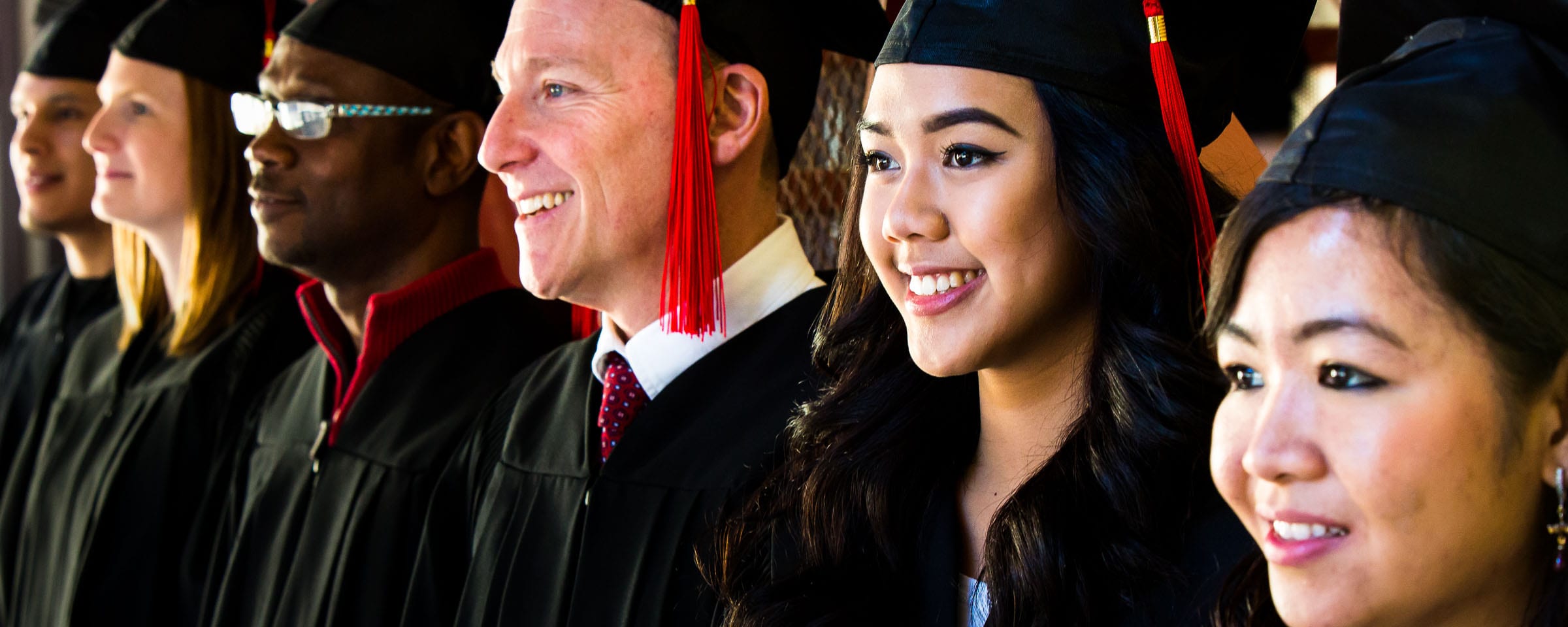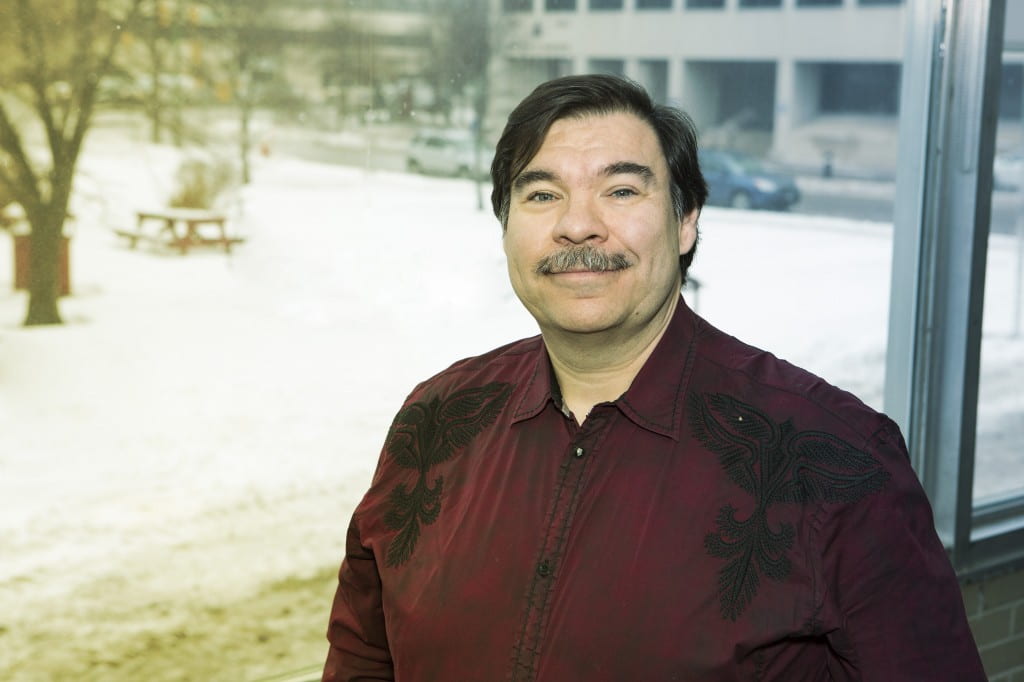What’s old is new again: RRC grad combines traditional Aboriginal healing techniques with Western psychotherapy
Old is new again when it comes to some counselling techniques.
Red River College grad Bill Thomas (Community-Centred Therapy, 1999) specializes in combining Western psychotherapy with traditional Aboriginal healing methods. Not only is he getting results, he’s also finding the two methods have a lot in common.
“[Clients] equated it to an internal vision quest,” Thomas says of the healing process. “The deep psychotherapeutic techniques in the Western world? [First Nations communities have] done that throughout the centuries from a spiritual point of view, so we had those embedded in our healing processes from our ancestors. It’s incredible.”
Thomas first developed the technique while completing his degree in social work at the University of Northern British Columbia in 2006. Today, he works as a clinical supervisor and mental health therapist for First Nations and Inuit Health while also running his own therapy practice.
Born and raised on Peguis First Nation, Thomas grew up in a less-than-ideal family environment.
“I went through a lot of trauma in my childhood years,” he says. “I saw my mom and dad go through some bloody battles and I just wanted to give up at four years old, and that’s when I had my first spiritual intervention with God. That helped a lot with living.”
Thomas, 50, has known he would help others since he watched his grandmother counsel her friends as a young boy.
“A long time ago, people used to go around visiting on the reserve and that’s how they did the traditional counselling. They’d counsel one another, help each other with chores and talk to each other about problems and stuff like that. I watched my grandma do that. She was my pillar.”
Prior to working as a therapist, Thomas worked for Child and Family Services in a variety of capacities, including family support worker and foster home/adoption coordinator. But after spending about 13 years with CFS, he was burned out and looking for a change.
“I kind of viewed [the CFS system] like a social police, going into families and controlling them and having the authority to take away children. And the system didn’t really work in my view so I said, ‘There’s got to be another way I can help. ’”
After his wife encouraged him to go back to school, Thomas enrolled in the Community-Centred Therapy Diploma program at Red River College.
“When I was 25 I did my spiritual healing – that was a lot of traditional ceremonies. So I wanted to incorporate some non-traditional healing,” Thomas explains of choosing RRC. “It was an experiential course… and it was also an educational course.”
“[It was] the client-centred, self-directed healing process that I liked.”
After graduating, Thomas took just eight months to complete the four-year degree in First Nations and Aboriginal Counselling at Brandon University in 2001. He also completed training in Focusing and Post-Traumatic Stress Disorder through the Prairie Region Centre for Focusing.
“Focusing is a six-step, therapeutic mind-body spirit process where you go back in a safe, controlled way to deal with old past traumatic experiences,” he explains. “To deal with them and release them. ”
After that, he completed his master’s in Prince George, B.C., where he developed an approach that integrates Western and traditional Aboriginal teachings.
To do this, he utilized an “Aboriginal methodological research point of view” to ensure the healing was culturally appropriate for Indigenous communities. This involved a lot of instructor feedback.
“My results were that the biggest part was the connective piece. So the therapist and the client had to be connected.”
Once that connection had been developed, the healing process could truly begin.
“I’ve been told by elders that that is almost a ceremonial healing that I’m doing, so that’s a big honour,” he says.
Much of Thomas’ work today involves providing counselling for individuals from four First Nations: Peguis, Lake St. Martin, Dawson River and Nelson House. This includes counselling individuals who were displaced during the 2011 flood.
“It’s horrible, they’re still evacuees. This [was] their third Christmas away from home.”
To work with the evacuees, Thomas employs a very gentle approach.
“[I go] at their pace, helping them develop a sense of community in the city of Winnipeg, and that’s really hard to do.”
He also does community consultation work, such as developing social and political policies for First Nations communities.
Thomas was also recently named as the first ever Indigenous Director of the Canadian Counselling and Psychotherapy Association, working to ensure there is an Indigenous lens on everything the Association does.
“A majority of the population looks after a minority of the population and that’s a component that’s missing – that connectedness and being culturally-appropriate,” he says.
“A lot of the therapeutic methods and models, they usually want the clients to fit into [a Western approach] and a lot of Indigenous people don’t fit into that because we have our own ways of healing. And that’s why a lot of therapists don’t make that connection.”
For more information on RRC’s Community-Centred Therapy diploma program, contact:
Anne Poonwassie, Director
CED-Prairie Region for Focusing, Experiential Therapies and Complex Trauma
204.275.6096 or cedprcf@gmail.com
Profile by Stacy Cardigan Smith (Creative Communications, 2006)

